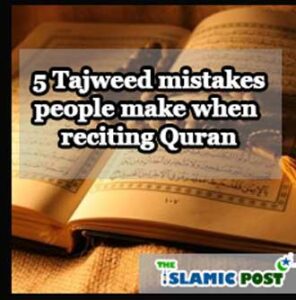Janaba is a state of major ritual impurity that requires a full bath in order to clean and pray. Also translated as preclusion. It’s a description for men & women when sexual intercourse happens or the discharge of semen. The full bath required to be clear is called Ghusl Janaba. You can know about Ghusl in the following lines. Tahara is the ritual purity that is needed to perform prayer.
What requires Ghuls from Janaba
An adult Muslim must perform Ghusl to be clean or Tahir in the following cases:
- Discharge of semen
- Sexual intercourse
- Menstrual Discharge
- Childbirth
Ghusl of Janaba is compulsory before praying Salah, visiting the Masjid, and touching Mushaf.
Steps of Ghusl from Janaba
To clean yourself from Janaba you should follow the way of prophet Mohamed PBUH. You should follow these eight steps:
1. Intention
You should intend to perform Ghusl. This is when a Muslim intends to purify himself from impurity.
2. Bismillah
Say Bismillah before you start. As a Muslim begin everything with.
3. Washing hands
Washing your hands three times; The reason for this is that the two hands are a tool for scooping water.
4. Washing the private parts
Washing the Private parts (vagina or penis only) with the left hand. This is because they are s the area of sexual impurity, so by washing them the Muslim gets rid of the dirt attached to them.
Clean the left hand, it should be a perfect cleaning; This is to get rid of the dirt attached to it during the washing of the private parts and to purify it with soap and water, as it takes the place of dirt.
Perform Ablution or Wudu
The ablution here is like the ablution for prayer and a complete ablution in which there is no deficiency, and it is not necessary to repeat the ablution after completing the Ghusl in order to perform the prayer. Just this ablution during Ghusl is sufficient, and there is no need to repeat it. Performing ablution again is for Men only if one touched his private part after making ablution of Ghusl.
Washing the feet
This matters if you are showing in a bathtub. There is a disagreement in the time of washing the feet so that it is with ablution? Or is it delayed until after washing? It appears in the narrated hadiths that the two methods are reported by the Messenger, may God bless him and grant him peace, as both are fixed in his honorable Sunnah, and the public recommended delaying their washing after completing the ablution, but since both methods were mentioned in the Sunnah of the Prophet, may God’s prayers and peace be upon him, there is nothing wrong with a Muslim coming with one of them sometimes, and the other at other times, he washes his feet with ablution, and at other times he delays washing them until the end of the ablution.
Washing hair
Pour water and let it run into the roots of the hair by inserting fingers between them; Until the water reaches the skin.
Washing the whole body
Run the water on the head three times after completing the water washing of the roots of the hair. Pour out the water all over the body once, and it is Sunnah to wash by letting your hand touch all parts of your skin, starting with the right side, then the left side of the body. The top part of the body first, then the bottom parts.
Those were the steps that you can follow to be pure from the state of Janaba. Once you have done this you are Tahir and clean and you can pray Salah or touch Mushaf.
Does bathing replace Ghusl from Janaba?
Ghusl comes with the meaning of the flow of water according to Fiqh scholars, and its meaning in the Sharia is “the flow of water over the body with a definite intention.
Among the conditions for the validity of ghusl from ritual impurity is that the water covers all the organs of the body and that the water permeates the hair until it reaches the roots.
Otherwise, it is not permissible because it violates the conditions of washing.


